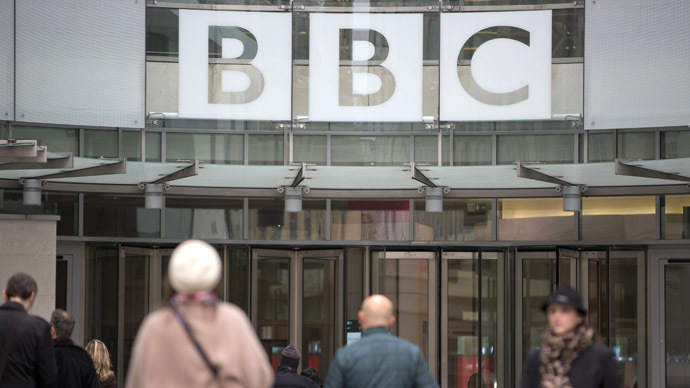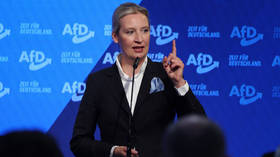BBC execs splashed extra $40mn to sweeten top manager exits

UK lawmakers have condemned senior BBC executives and trustees, including the ex-boss Mark Thompson, for handing out exorbitant severance payments to outgoing managers –sums allegedly going to friends and acquaintances.
From 2009 to 2012, the BBC gave £25million (almost $40 million)
to 150 departing senior managers.
In an internal e-mail, it was revealed that a £1 million ($1.63
million) was paid to former deputy director general, Mark Byford.
Also, £470,000 (around $760,000) was given to George Entwistle, who quit after less than two months as BBC director-general over a news report which falsely accused the ex-politician of child abuse.
Neither was the corporation distributing the severance payments evenly, as it turned out.
The BBC claimed that it had been “custom and practice”, but not a legal requirement, to add salary in lieu of notice to departing managers' standard redundancy entitlement, regardless of whether they worked their notice. However, this was not applied consistently. Of the 150 senior managers who received severance pay in the three years to December 2012, 62 received payments equivalent to the BBC's standard redundancy policy and 17 received less, according to the PAC official statement.
In a statement, the BBC’s former head, Mark Thompson, who is now the top executive at The New York Times was quoted by The Guardian before the embargo on the PAC report was lifted.
Thompson said there was “no evidence of any wrongdoing by anyone at the BBC in relation to these severance payments”.
"The members of the PAC are entitled to criticize the result, but the decision to make the settlement was made in an entirely proper and transparent way,” the ex-head of the BBC also stressed.
Moreover, The New York Times said it has full confidence in Thompson.
However, the PAC commented on the fact that many of the outgoing officials "far exceeded" their contractual agreements, with some justifications of the payouts being "extraordinary”.
"We are asked to believe that the former Director General Mark Thompson had to pay his former deputy and long-time colleague, Mark Byford, a substantial extra sum to keep him 'fully focused' on his job instead of 'taking calls from headhunters'," Margaret Hodge, the PAC's chairwoman and a senior lawmaker, said.
BBC governance plan was branded “broken” by the PAC.
"There was a failure at the most senior levels of the BBC to challenge the actual payments and prevailing culture, in which cronyism was a factor that allowed for the liberal use of other people's money," the PAC said in an official statement.
In the internal e-mail mentioned above, a top HR director, Lucy Adams, referred to such payments as “sweetners”.
In September, a key part of her evidence proved to be false: having originally stated that she hadn’t known about the e-mail, she turned out to be its key author.
Despite the latest PAC report being quite harsh on BBC executives, it was still criticized for not damning the top corporation’s officials enough.
Some Conservative members of the committee thought the results were glossed over by Margaret Hodge, who is from the Labour party.
Steve Barclay, a Tory member of the PAC, even suggested that Hodge was reluctant to antagonize the BBC further because her daughter works for the corporation, the Daily Mail reported.
The current scandal comes in the wake of a turbulent year in the BBC’s history: Thompson’s successor, George Entwistle, stepped down from his position after less than two months in office over a scandal-mongering news report, and became involved in the payouts furor.
In 2012, it was revealed that Jimmy Savile, one of the corporation's biggest stars in the 1970s and 80s, was a long-standing paedophile.
The scandal also comes against a backdrop of UK food poverty becoming an alarming reality, according to official statistics.
The official data suggests that the number of those admitted to hospitals with malnutrition has risen from 3,161 in 2008/09 to 5,499 in 2012/13.
In early December, its extent prompted six public health experts to co-author a letter to the British Medical Journal.















